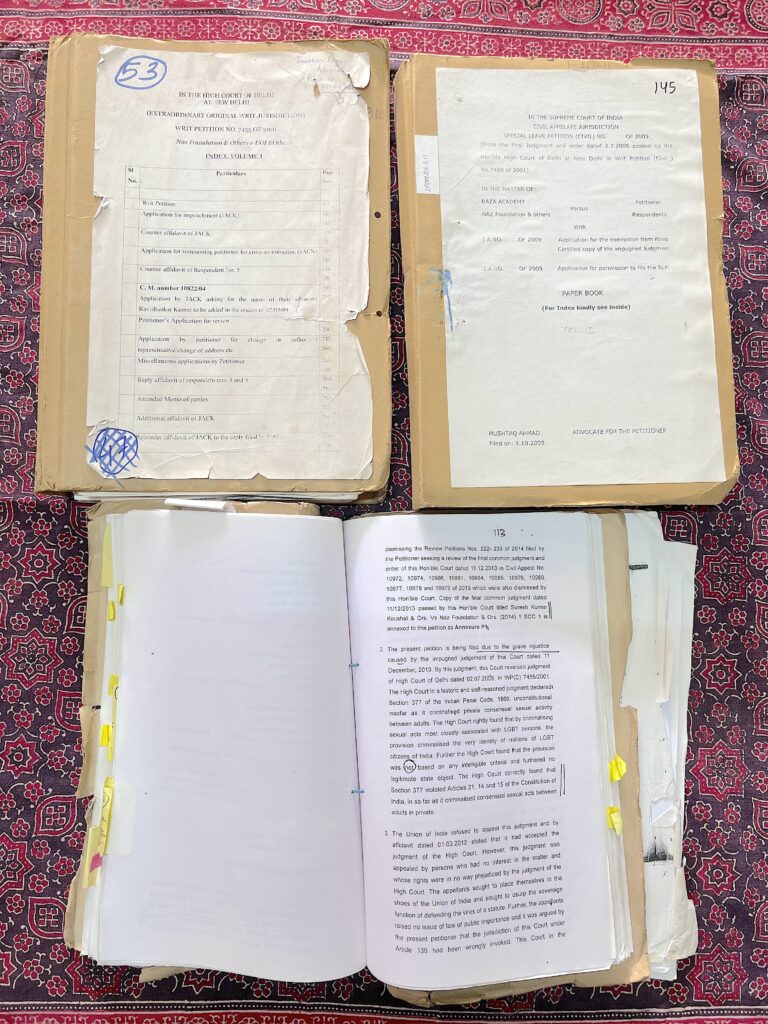The legal battle to decriminalise homosexuality in India began with ABVA (AIDS Bhedbhav Virodhi Andolan) filing a petition which challenged the constitutionality of Section 377 of the Indian Penal Code (IPC) in the High Court of Delhi in 1994. Sec 377 IPC, India’s sodomy law, stated:
Unnatural offences.—Whoever voluntarily has carnal intercourse against the order of nature with any man, woman or animal, shall be punished with 1[imprisonment for life], or with imprisonment of either description for a term which may extend to ten years, and shall also be liable to fine. Explanation.—Penetration is sufficient to constitute the carnal intercourse necessary to the offence described in this section.
Judicial proceedings conducted at the High Court of Delhi and later at the Supreme Court of India over the next 24 years resulted in the Navtej judgment. On 6 September 2018, the Supreme Court of India read down Sec 377 IPC as unconstitutional, and excluded consensual sexual intercourse between adults from its ambit.
This collection presents the various dimensions to the 377 litigation saga through its five series. They have material in multimedia formats: 1) Court Documents, 2) Research and Writing, 3) Ephemera 4) Newspaper Articles, and 5) Videos. The court documents and research material came to QAMRA from the legal offices of Alternative Law Forum, Bangalore and Jawahar Raja’s Chambers, New Delhi. The audio visual material is from T. Jayashree’s Collection. Ephemera and Newspaper articles are from multiple sources comprising of individuals and organisations.
Each series allows a unique vantage point into the intersection of law, society, the state, culture, morality, access to healthcare,

queer activism and the media, working with and sometimes against each other to affect social change and legal reform.
The courtroom documents chronicle the inner workings of the court and make it accessible to the public. In chronological order, the 377 litigation movement includes different cases:
To frame their arguments for court, lawyers on both sides consulted extensive lists of books, essays, media articles, surveys, reports, judicial precedents, international accords, employment policies and multidisciplinary research papers. These are contained in the Research & Writing series, along with hand written research notes made by a few lawyers. This series portrays the meticulous research and attention to detail that goes into constructing the written and oral submissions for court.
The ephemera and newspaper articles presented in two different series depict collective and individual efforts undertaken in sensitising, mobilising and collectivising different sections of the society to support the decriminalisation of homosexuality. Different social movements allied themselves with the queer communities in this struggle and participated in the project of bringing about a change in public opinion.
The videos in the last series of this collection are of interviews with the lawyers, activists and individual intervenors who were a part of the legal process. This documents the memories of the people involved in order to preserve a personal aspect to this vigorous interaction with the law.